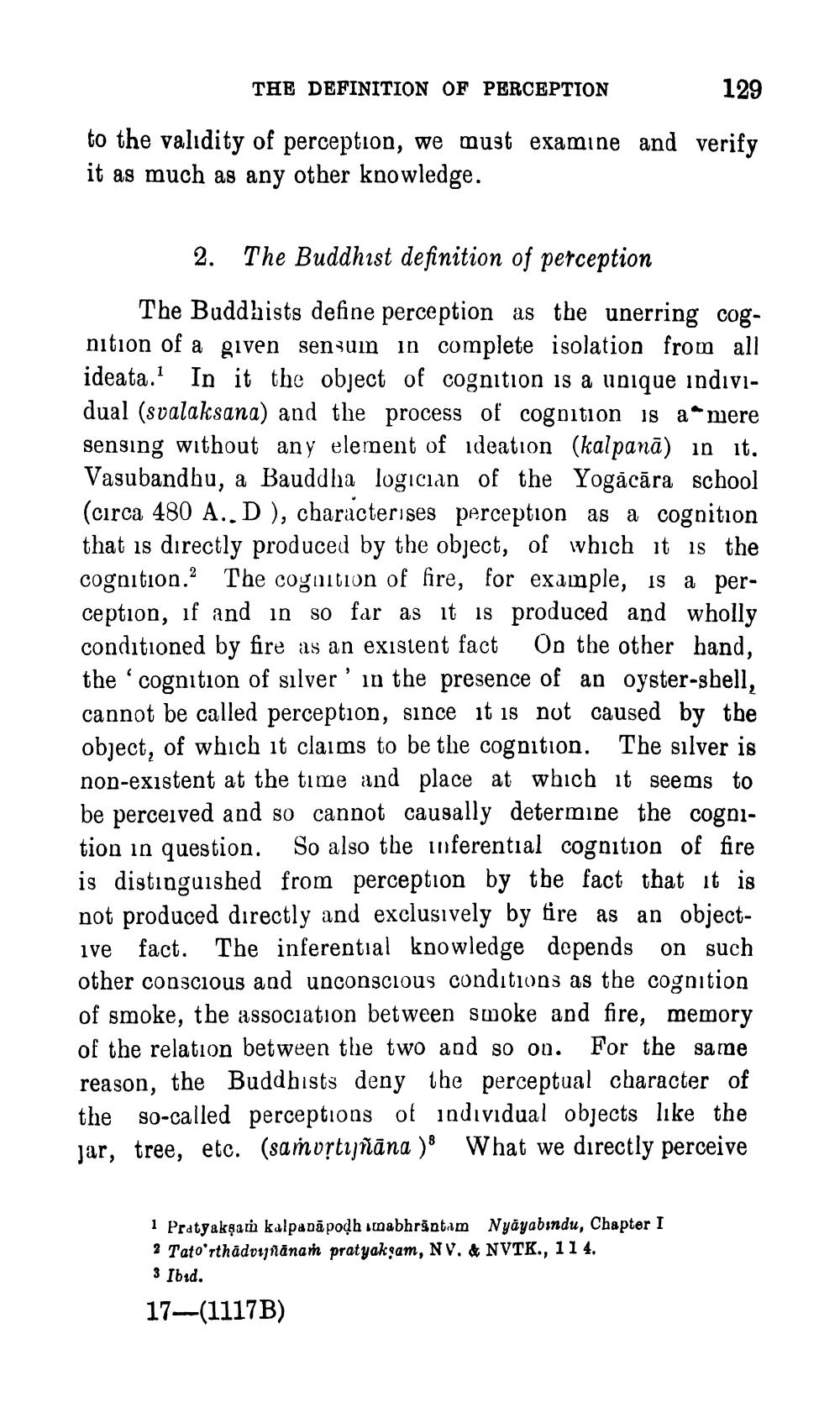________________
THE DEFINITION OF PERCEPTION
129
to the validity of perception, we must examine and verify it as much as any other knowledge.
2. The Buddhist definition of perception The Buddhists define perception as the unerring cognition of a given sensuin in complete isolation from all ideata. In it the object of cognition is a unique individual (svalaksana) and the process of cognition is ao mere sensing without any element of ideation (kalpanā) in it. Vasubandhu, a Bauddha logician of the Yogācāra school (circa 480 A..D), characterises perception as a cognition that is directly produced by the object, of which it is the cognition. The cognition of fire, for example, is a perception, if and in so far as it is produced and wholly conditioned by fire as an existent fact On the other hand, the 'cognition of silver' in the presence of an oyster-shell, cannot be called perception, since it is not caused by the object, of which it claims to be the cognition. The silver is non-existent at the time and place at which it seems to be perceived and so cannot causally determine the cognition in question. So also the inferential cognition of fire is distinguished from perception by the fact that it is not produced directly and exclusively by tire as an objective fact. The inferential knowledge depends on such other conscious and unconscious conditions as the cognition of smoke, the association between smoke and fire, memory of the relation between the two and so on. For the same reason, the Buddhists deny the perceptual character of the so-called perceptions of individual objects like the jar, tree, etc. (samostijñāna )What we directly perceive
1 Pratyakşam kalpadăpodh iabhrántam Nyayabindu, Chapter I 2 Tato'rthädvijnanam pratyaksam, NV. & NVTK., 11 4. 3 Ibid. 17—(1117B)




